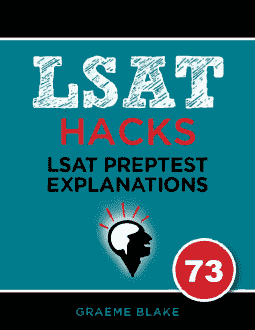DISCUSSION: The first paragraph describes Marcuse’s theory of advertising.
It’s always a good idea to reread/skim the relevant paragraph before answering this type of question. This takes a few seconds, but you’ll eliminate wrong answers much faster.
___________
- What political context? The passage doesn’t describe any political systems.
- If this answer were right, then we’d be able to find something in paragraph 1 that says how advertising creates false needs. The first paragraph says Marcuse thinks advertising creates false needs, but Marcuse doesn’t say how advertising does this in paragraph 1.
- The first paragraph doesn’t say anything like this! The word psychology doesn’t even appear, and the paragraph doesn’t evaluate the techniques advertising uses.
- The first paragraph is only talking about “some” critics of advertising: those that agree with Marcuse. We have no idea if they’re the dominant critics of advertising.
- CORRECT. The first paragraph has two parts. Lines 4-15 describe Marcuse’s theory of false needs. Lines 1-4 say some critics think this theory is the major explanation of advertising’s power. In this answer, that corresponds to “Marcusian views” and “role in certain criticisms of advertising”.


Hello,
Your reasoning for answer (C) is incorrect. The passage does discuss psychology. Specifically lines 9-15. “This process occurs because in the mass market culture, the psychological techniques of advertising create “needs” that are false and whose satisfaction thus contributes, not to the well-being of consumers, but rather to the profit – and thereby the disproportionate power – of corporations.”
The answer choice (C) lists: evaluate the psychological processes by which the manipulative techniques of mass market advertising influence the individual.
I think that the test taker is expected to remember seeing the words psychological processes and rush through by selecting that choice. While there is no evaluation of the process, the process is discussed at length, longer than the mention of Marcuse, which can make it even more attractive.